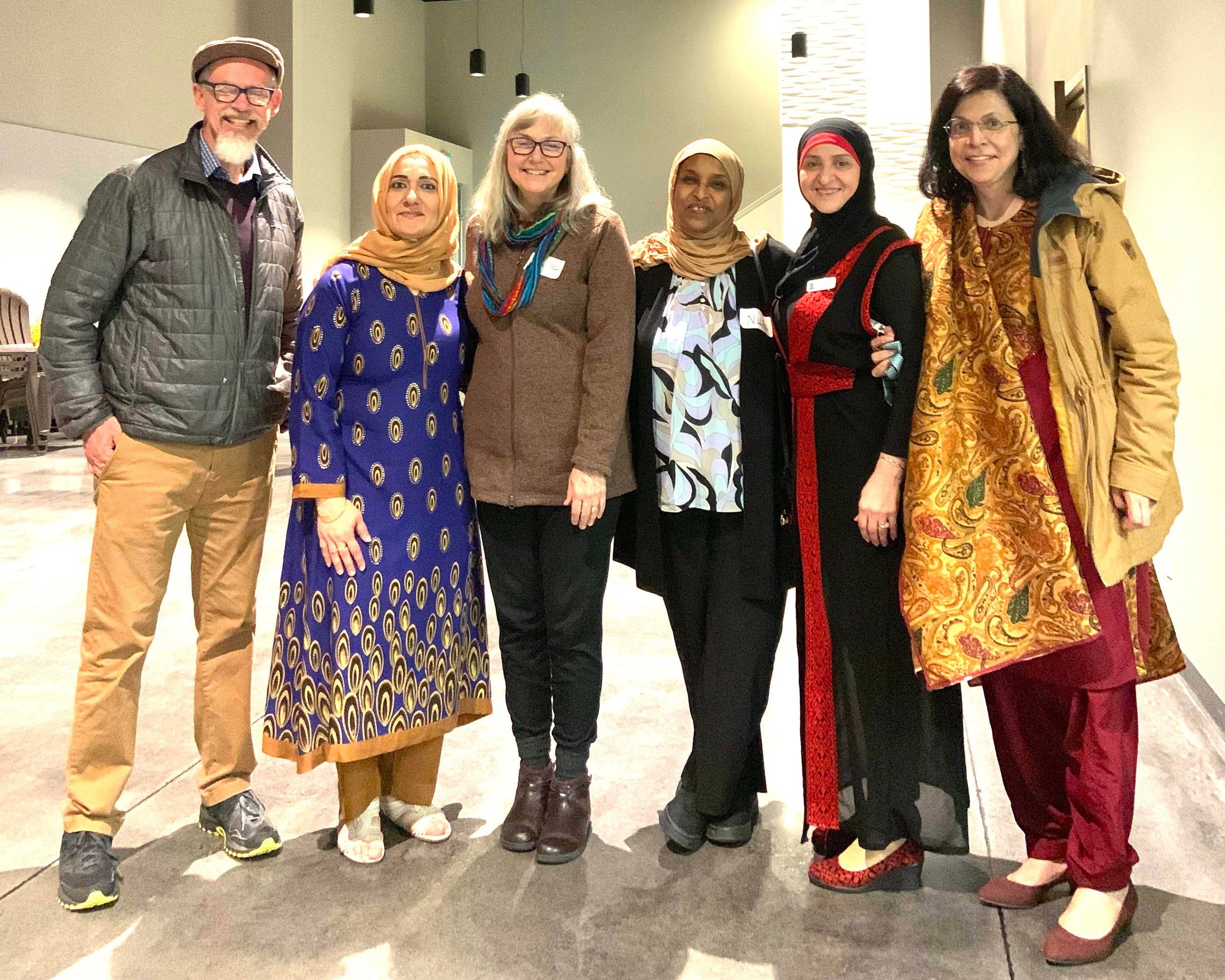This Imam is Building Safer Communities Through Interfaith Engagement
by Becca Pugh
I first met Imam Ali Siddiqui during our virtual dialogue event at the outset of the covid-19 crisis. He has been facilitating spaces for people of different faiths to come together and build friendships at the table for more than 20 years. Whether it's in Santa Rosa, CA, Colorado, or Washington, DC, his Brunch Dialogues have been the catalyst for people from different faith groups to build real friendships with each other.
Interfaith engagement has always come naturally to Imam Ali. Growing up in India, he witnessed his grandfather engaging with the diverse community there, working with Hindus from both the upper-class and the Dalit "untouchables." His grandfather's relationships impacted him on a deep, subconscious level. When they became refugees in Pakistan, his mother helped their neighbors in the community by driving them places, including clinics for health needs, and it didn't matter who they were - if they needed help with something, she was there. This kind of service and love became natural to Imam Ali. As a college student in Pakistan, he socialized with people of different faiths, including Catholics, Zoroastrians, Muslims, and Hindus. They all hung out together, and this caused him to develop a certain understanding that became part of his personality.
When Imam Ali migrated to the U.S. to continue his college degree, his interfaith engagement continued. He lived in a community of interfaith students that shared food and living space. He also started a council comprised of all the religious groups on campus that gave each faith group the opportunity to share about who they are and how they practice their faith every year. These positive experiences reinforced what he grew up understanding, that even though people may be different, he should treat everyone with respect and equality...
"...because we are all human beings, and if we don't realize that, then there is something missing. If we care for others, they will care for us. If you respect someone else, they will respect you."
During a visit to a rose garden in Portland, Oregon, Imam Ali saw something he didn't expect. Instead of seeing just pink or red roses, there was a multitude of colors - orange, blue, black, purple, yellow, and all different shades. This showed him the nature of human beings - that we are all different shades of people, including the different inspirations and aspirations we have, and this gave him an even greater sense of respect for others. As he continued interfaith relationships, he began inviting more people. He didn't expect that when he invited people to his home or apartment that they would do the same. He simply invited people to sit with him and become friends. They become closer to each other, and he found that they were all (Muslims, Hindus, Jews, Christians, Sikhs, Bahai and others) living in one community that relies on each other - if something goes wrong, it will affect all of them, not just one group of them. There was an incident in Santa Rosa, CA where houses were catching fire. This interfaith community that had built friendships with each other were going into each other's homes and carrying people out, making sure everyone was safe. This demonstrates the kind of community Imam Ali always imagined:
"We need to break barriers, open up our doors, and develop friendships so that we become concerned about each other. We need to be able to support each other if serious issues like this arise, or if other things come up. We need to keep opening up to more people and expanding the circle of those who come into this interfaith engagement."
Imam Ali suggests that we can all build relationships like these, but we need to take the first step in opening up to other people. We should try to make friends with people who don't look like us. We should work together to build understanding and respect.
"Jesus advanced love without discrimination. If anyone is Christian but doesn't extend that love to other people, what good is it? When Jesus said love thy neighbor, he meant it. There will always be groups who don't want to come together, but those who do can set the example."
He asserts that we should participate in each other's lives - weddings, birthday parties, religious ceremonies, etc. Let's open up the invitation for people to come, inviting them to events that include our faith practice/history/background to share it with them and each other.
"Is America a melting pot or a salad bowl? We have everything that makes up a delicious salad - different kinds of lettuce, tomatoes, olives, cucumber, croutons, different kinds of dressings - and when you eat the salad, you get a taste of everything, which has distinct flavors. This is the beauty of being made up of multiple cultures, languages, ethnicities, races, and heritages."











